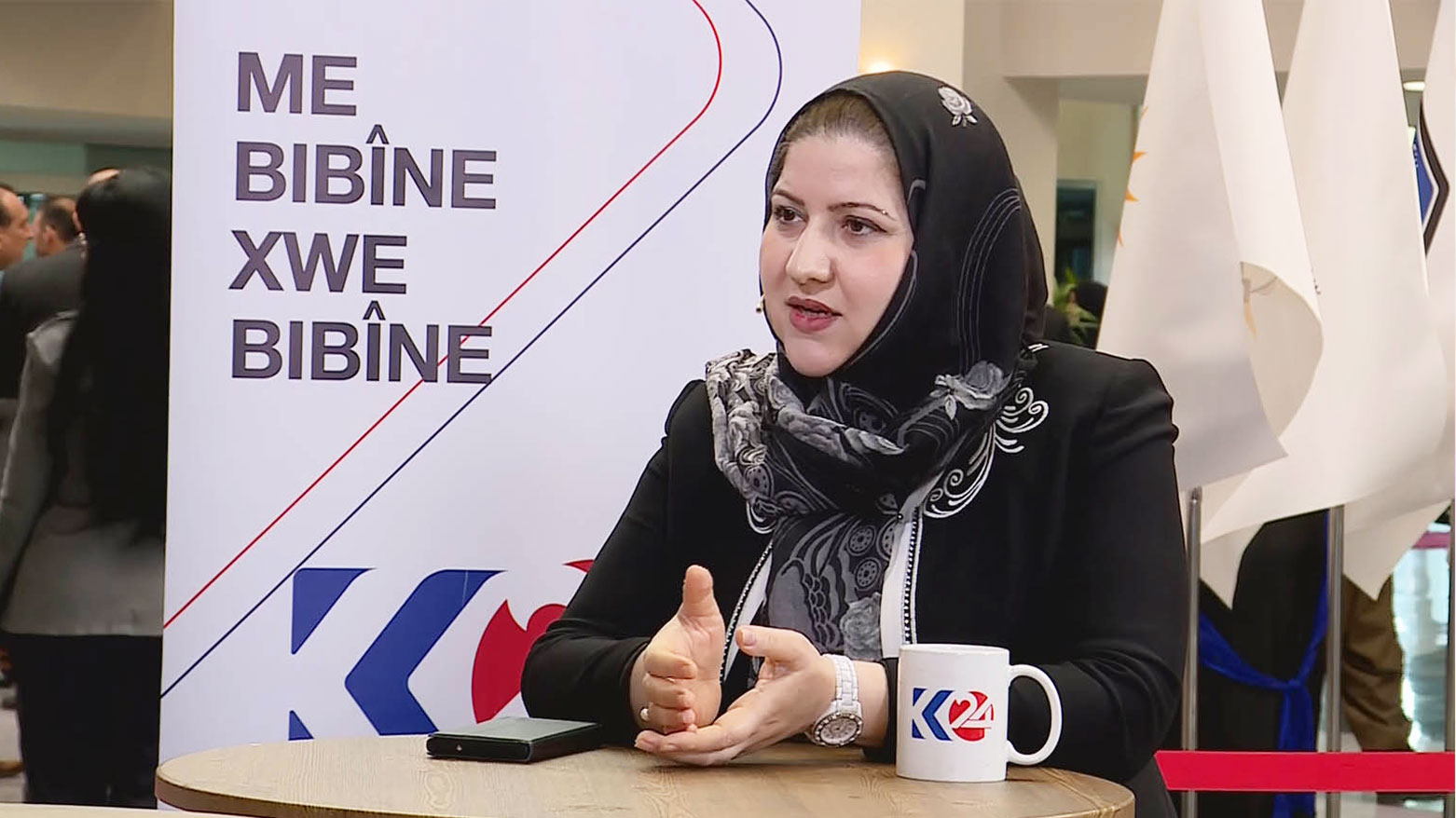11 Years After ISIS, Return of Sinjar’s Residents Still Elusive Said Top KRG Official
Sarwa Rasul expressed appreciation for Prime Minister Barzani’s unwavering support in protecting displaced communities and maintaining social harmony across the Kurdistan Region.

By Ahora Qadi
ERBIL (Kurdistan 24) – The Director of the National Center for Joint Crisis Coordination in the Kurdistan Region’s Ministry of Interior, Sarwa Rasul, on Tuesday reiterated that the failure to implement the Sinjar Agreement remains a major impediment to the return of displaced Ezidis and residents of the war-ravaged district, despite the passage of more than 11 years since Sinjar’s liberation from ISIS.
Rasul made her remarks during the First International Scientific Conference on Ezidi Religion, Culture, History, and Geography, held in Duhok, under the patronage of Kurdistan Region Prime Minister Masrour Barzani.
Agreement on Paper, Inaction on the Ground
In an exclusive interview with Kurdistan 24, Rasul lamented that the 2020 Sinjar Agreement, signed between the Iraqi federal government and the Kurdistan Regional Government (KRG), has yet to be executed on the ground. This is despite the deal being part of Prime Minister Mohammed Shia’ al-Sudani’s government program and having been brokered with the support of former UN envoy Jeanine Hennis-Plasschaert.
"Despite all the committees formed and the promises made, no tangible steps have been taken to implement the agreement," Rasul said. "Meanwhile, the KRG—under the leadership of Prime Minister Masrour Barzani—remains fully committed to this issue."
Over 350,000 Remain Displaced
According to Rasul, more than 350,000 displaced Ezidis and other residents from Sinjar and surrounding areas are still residing in Erbil and Duhok provinces, with no pathway to return due to insecurity and lack of institutional governance.
She warned that the continued displacement risks permanent demographic changes in the region and called for immediate efforts to preserve the religious and ethnic mosaic of Sinjar, particularly the Ezidi community.
"The KRG will never abandon this file until every displaced Ezidi is able to return to their homeland," she emphasized.
Appeal to Baghdad: Disarm Militias and Stabilize Sinjar
Rasul also urged the federal government in Baghdad to take urgent action to dislodge armed groups that have taken root in Ezidi-populated areas, warning that their presence continues to obstruct normalization and reconstruction efforts.
She expressed appreciation for Prime Minister Barzani’s unwavering support in protecting displaced communities and maintaining social harmony across the Kurdistan Region.
Call for International Pressure
Rasul concluded by voicing hope that the Duhok conference would galvanize international pressure on Baghdad to act. She cautioned that the withdrawal of international organizations from Ezidi-related programs in Iraq could have serious humanitarian and political consequences.
“We need the international community to remain engaged and to help bring about a sustainable resolution for Sinjar,” she said, highlighting the urgency of returning thousands of displaced families to their ancestral lands.
